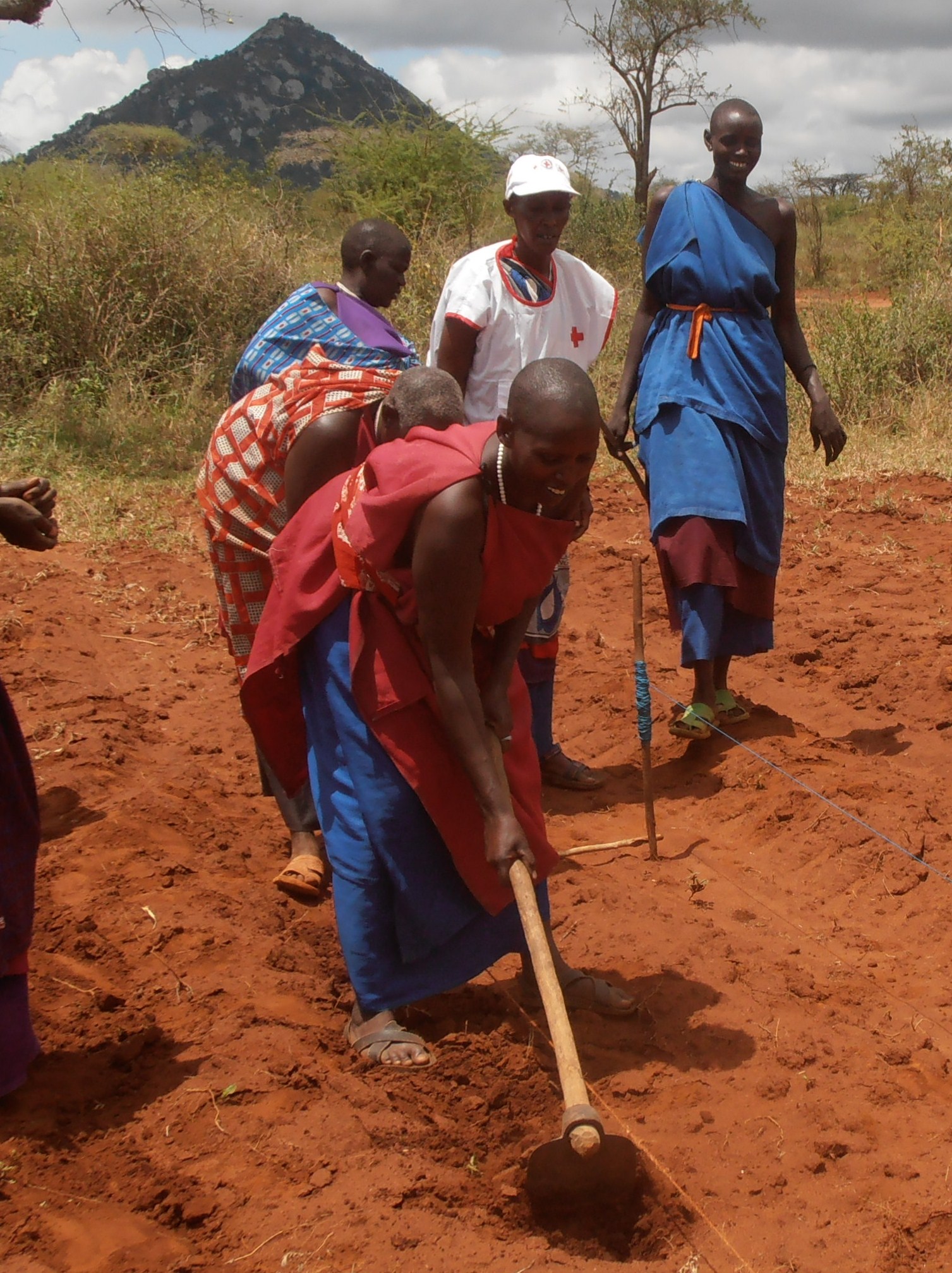La FAO apuesta por la agricultura familiar para combatir el hambre
La FAO apuesta por la agricultura familiar para combatir el hambre
October 30, 2014
El Día Mundial de la Alimentación 2014 pone énfasis en el mensaje "Alimentar al mundo, cuidar el planeta"
Sensibilizar a la población mundial sobre la agricultura familiar y la importancia de los pequeños agricultores es el objetivo que se ha fijado la FAO para el Día Mundial de la Alimentación, que se celebró el pasado 16 de octubre. Y es que la agricultura familiar está indisociablemente vinculada a la Seguridad alimentaria nacional y mundial, está ligada al desarrollo rural y es una potente herramienta para luchar contra el hambre y la pobreza en el mundo.
Recordemos que erradicar la pobreza extrema y el hambre es el primero de los Objetivos del Milenio. Desgraciadamente lejos de cumplirse para 2015, organizaciones como la FAO no dejan de hacer hincapié en que el desarrollo de la agricultura familiar es uno de los puntos clave para mejorar los medios de vida, la ordenación de los recursos naturales, la protección del medio ambiente y la consecución del desarrollo sostenible, en particular en las zonas rurales.
En este sentido, también la Asamblea General de las Naciones Unidas proclamó 2014 Año Internacional de la Agricultura Familiar. Hecho que resulta una clara señal de que la comunidad internacional reconoce la importante contribución de los agricultores familiares a la seguridad alimentaria mundial.
La agricultura familiar, sólida base del trabajo agrícola en el mundo
Unos datos proporcionados por la FAO para percatarnos de hasta qué punto la citada agricultura sustenta, en cierta manera, la producción de muchas regiones del mundo:
- Hay más de 570 millones de explotaciones agrícolas en el mundo, de las cuales más de 500 millones pertenecen a familias.
- La agricultura familiar es responsable de, como mínimo, el 56% de la producción agrícola.
- Los agricultores familiares trabajan un porcentaje más que importante de las tierras agrícolas del mundo: el 83% en América del Norte y Central, el 18% en América del Sur, el 62% en África, el 68% en Europa y el 85% en Asia.
- Sólo en EUA, los agricultores familiares producen el 84% de todos los productos, con ventas por valor de 230.000 mil millones de dólares, trabajando el 78% de todas las tierras agrícolas.
Pese a tener menos acceso a recursos productivos, como ahora inputs o ayudas agrícolas, los agricultores familiares continúan gestionando sus tierras con el fin de mantener extraordinarios niveles de productividad. La agricultura familiar, además, conserva los productos alimentarios tradicionales, a la vez que contribuye a una dieta equilibrada y protege la biodiversidad agrícola mundial y el uso sostenible de los recursos naturales.

Proyectos de desarrollo agrícola de la Fundación Probitas
Es por ello que la Fundación Probitas apoya algunos proyectos que fomentan el desarrollo de esta actividad en zonas vulnerables del mundo. Un ejemplo es un programa de acceso físico y económico a alimentos nutritivos para 1.500 familias de la población masai del distrito de Simanjiro, una zona con un bajo índice de desarrollo de Tanzania, con problemas de seguridad alimentaria causados por las intensas sequías cíclicas, la escasez de infraestructuras, la baja productividad agraria y ganadera y la falta de acceso a entradas o inputs. En colaboración con Cruz Roja Española, y juntamente con Cruz Roja Tanzania, el programa –aún en ejecución- se centra en dar apoyo a las capacidades organizativas y productivas de la población, mediante la mejora de las parcelas agrícolas y del acceso a infraestructuras hídricas a través de la construcción de tres presas y tres sistemas de irrigación que, además de mejorar la productividad del ganado, permite mejorar el estado nutricional de la población a través de la generación de ingresos con el cultivo de trigo, sorgo, judías y girasol. El proyecto también está capacitando a las personas beneficiarias en técnicas de cultivo y empoderando 12 asociaciones de mujeres VICOBA (Village Community Banks) en gestión de comités de agua y parcelas hortícolas.
Por otra parte, la Fundación Probitas ha facilitado el proyecto de desarrollo agrícola de la asociación de mujeres de Touba Kolong, en Gambia, en colaboración con la ONG UNOMASUNO+. El proyecto se ha realizado vinculando un centro educativo catalán, el colegio El Casal de Castellar del Vallès, con el fin de generar una relación que fomente tanto la cooperación como la sensibilización. Así, el alumnado y profesorado ha contribuido en la recaptación de fondos para el proyecto, que posibilita el desarrollo autónomo y mejora la calidad de vida de la comunidad del poblado mejorando las infraestructuras como un pozo, un buen sistema de irrigación y de bombeo, un sistema de abastecimiento de energía sostenible y aportación de maquinaria agrícola. El proyecto ha dado tanto que hablar que ha tomado el nombre de "Som un bloc" y las experiencias se han recogido en esta web.
Al margen de los proyectos de colaboración internacional, la Fundación Probitas también apoya un huerto comunitario en San Roc (Badalona Sur), un espacio abandonado y degradado de la ciudad que se rehabilitó con el objetivo de implicar a los diferentes colectivos del territorio (centros educativos, entidades sociales y grupos informales). Actualmente, el huerto constituye una sede de actividades socioculturales que promueven el cuidado del entorno y la convivencia en una zona caracterizada por el alto porcentaje de población en riesgo de exclusión social. Este espacio natural basado en la agricultura ecológica y el respeto por el medio ambiente cuenta con una media de 40 usuarios diarios. La Fundación Probitas apoya este huerto en el marco del componente de hábitos saludables del programa de Refuerzo de la Alimentación Infantil (RAI).
